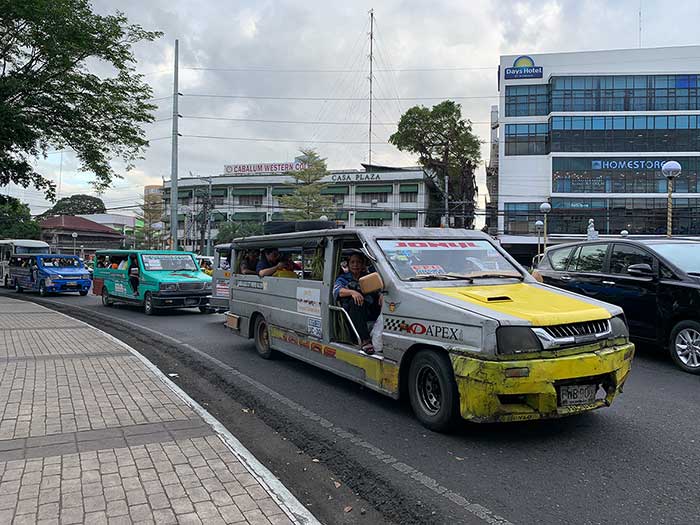
By Joseph Bernard A. Marzan
An advocacy group on Friday, April 26, pushed for comprehensive public transport reform which would see more amicable policies and increased government budgets for improving mass transport infrastructure.
The Comprehensive Public Transport Reform (COMMUTr) Program, developed by transport advocacy Move As One Coalition (MAOC), is being offered as an alternative option to the current Public Utility Vehicle Modernization Program (PUVMP).
The proposal was based on discussions with transport workers, commuters, the academe, persons with disabilities, and local governance practitioners, among others.
It involves reforming the business model to improve commuter services, supporting stronger cooperatives to be one team, implementing only priority routes and focused monitoring on service standards, and a just transition.
Five key elements of the program include:
– Focusing on priority routes with properly-monitored service plans and standards to improve commuter service quality;
– Clear and adequate compensation for transport workers transitioning out into a modernization program;
– Prioritizing franchises for existing transport workers, making their franchises time-bound and exclusive per route;
– Providing adequate budget for equity subsidy and capacity support for cooperatives as one team; and
– Have the Department of Transportation (DOTr) and local government units (LGUs) manage the program, and not the Land Transportation Franchising and Regulatory Board (LTFRB).
MAOC advisor and former coordinator Kenneth Isaiah Abante said that the program aims to improve commuter service quality and a just transition for transport workers and that the current PUVMP had strayed from these goals.
“We are here because we believe in the original goals of the [PUVMP], and we really want the program to succeed. [F]or public transport reform to succeed, it should be comprehensive and not piecemeal,” Abante said.
“This is the compassionate and comprehensive public transport reform program we are proposing, where the DOTr and the LGUs, not the LTFRB, lead implementation,” he added.
Abante listed four key reasons why commuting has become more difficult in the country, including a decline in transport supply, a car-centric budget, car-centric metrics, and car-centric planning.
He cited data from the Greater Manila Area, where public transit trips along major road networks have gone down by 14 percent from 2010 to 2019, while private car and motorcycle trips have surged by 46 percent.
A study they did in 2021 indicated that Metro Manila alone will have a shortage of 2.8 million daily passenger trips by 2030, already factoring in the national government’s completion of its P2-trillion rail-heavy infrastructure pipeline.
They also found that the national government has infused 99 percent of its P2.8-trillion road-based infrastructure budgets from 2010 to 2021 went to road construction widening and maintenance, and only the remaining 1 percent went to expanding road-based public transport (buses, jeepneys, bikes, and pedestrian infrastructure).
This measly portion also includes support for transport workers transitioning into the PUVMP.
He also pointed out that success indicators of transport-related agencies were more focused on private vehicle use, including the length of roads and vehicles that use these roads, among others.
“[W]hat we really need are improvements in commuter service quality. How long do we wait at a bus stop? How is the schedule, and the schedules of public transport supply being followed? How are our road crash statistics?” Abante raised.
“Majority of our road space and city space is given to private vehicles vs. public transport, and road space allocation is inequitable, inducing demand for more private vehicle travel and actually increasing travel times for everyone, which is seen in our 2021 studies as well,” he added.
In response, DOTr’s new Undersecretary for Road Transport and Infrastructure, Jesus Ferdinand Ortega, admitted that there must be improvements to the current PUVMP, but the April 30 deadline for franchise consolidation remained.
“It was very clear what President [Ferdinand Marcos Jr.] said, there will be no more extension. On that part, it is done. There have been 6 to 7 extensions [already]. April 30 will happen, and will really happen,” said Ortega.
Ortega, who was previously the chairperson of the Office of Transportation Cooperatives, also committed to listen to more concerns from the public transport sector, commuters, and other relevant stakeholders to improve the program.




















